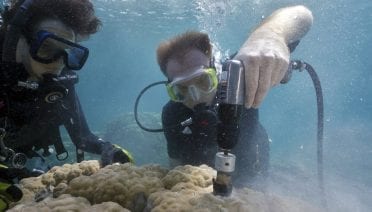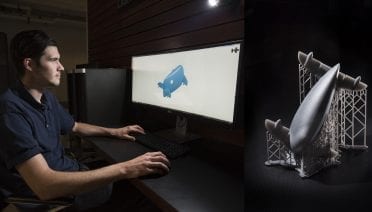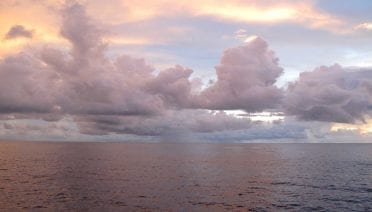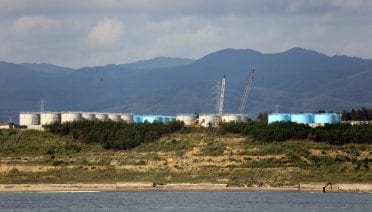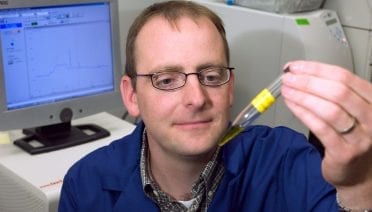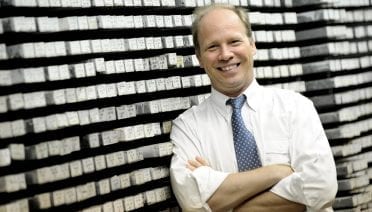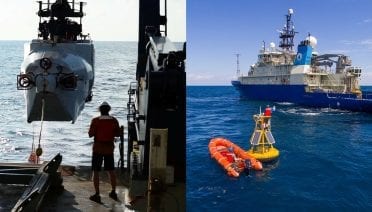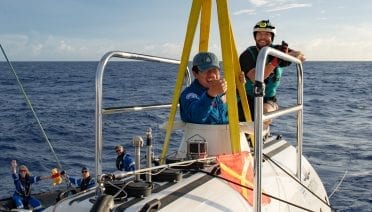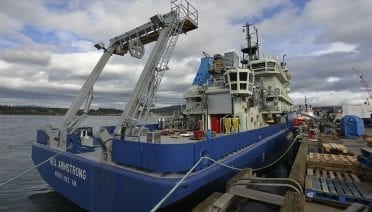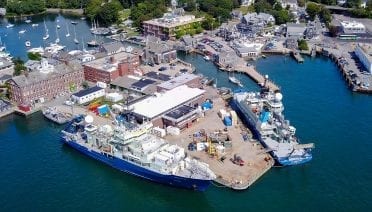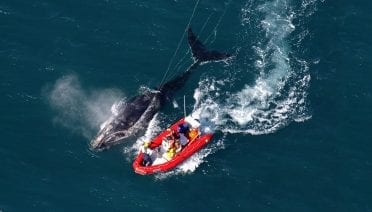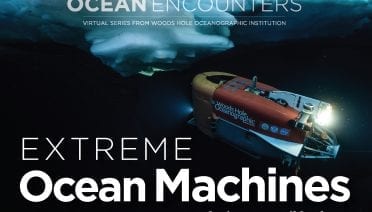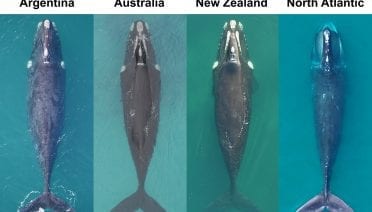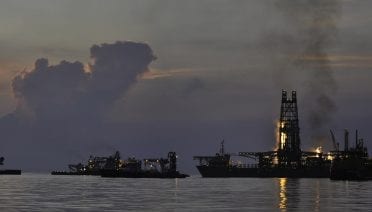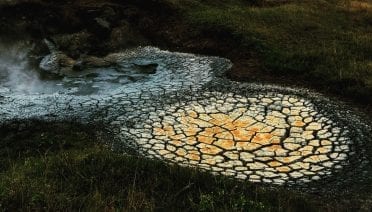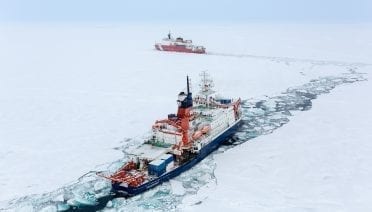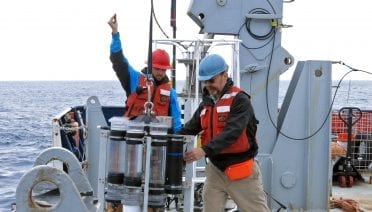Press Room
Scientists have long suspected that ocean acidification is affecting corals’ ability to build their skeletons, but it has been challenging to isolate its effect from that of simultaneous warming ocean temperatures, which also influence coral growth. New research from the…
Massachusetts has long been known as a center of invention and technical innovation and, more recently, has gained attention for its vibrant marine robotics startup community. Now startup companies, entrepreneurs, and others in the Commonwealth who work in the marine…
A key component of the Gulf Stream has markedly slowed over the past century-that’s the conclusion of a new research paper in Nature Communications published on August 7. The study develops a method of tracking the strength of near-shore ocean…
A new study in the journal Science addresses recent suggestions that treated wastewater from the Fukushima Dai-ichi Nuclear Power Plant should be dumped in the ocean.
The Simons Foundation has awarded Woods Hole Oceanographic Institution (WHOI) scientists Dan Repeta and Benjamin Van Mooy two grants totaling $2.7 million to study key processes that help fuel the health of our ocean and planet. Repeta’s research will focus…
Climate scientist and expert in Earth-human interactions will be the Institution’s 11th leader
Woods Hole Oceanographic Institution (WHOI) scientists appear in two shorts and a feature film at this year’s Woods Hole Film Festival (WHFF). In addition, scientists will also participate in Q&A sessions connected to three of the festival’s feature-length, ocean-themed entries.…
Ying-Tsong Lin is the 12th person in history and the first person of Asian descent to visit ocean’s deepest seafloor A Woods Hole Oceanographic Institution researcher became one of just a handful of people to visit the deepest part of…
After ten weeks of preparation, nine science team members from Woods Hole Oceanographic Institution (WHOI) will depart on the R/V Neil Armstrong from Woods Hole, MA on Sunday 7 June 2020 for an 11-day expedition to service the Pioneer Array, a collection of ocean observing equipment off the New England coast, 55 miles south of Martha’s Vineyard.
The Board of Trustees of Woods Hole Oceanographic Institution (WHOI) announced today the election of two new trustees and nine new corporation members. The new trustees are Dr. Cullen Buie, Ph.D., of Cambridge, MA and John R. Kreider of Sykesville,…
A new study found that New England’s historic lobster fishery may turn a higher profit by operating with less gear in the water and a shorter season, which could also benefit endangered North Atlantic right whales.
On May 20, ocean explorer and world-renowned filmmaker James Cameron will host a special edition of Ocean Encounters, a popular virtual event series from Woods Hole Oceanographic Institution.
New research by an international team of scientists reveals that endangered North Atlantic right whales are in much poorer body condition than their counterparts in the southern hemisphere.
Ten years after the Deepwater Horizon explosion caused the largest accidental marine oil spill in history, WHOI marine geochemists Elizabeth Kujawinski and Christopher Reddy review what they— and their science colleagues from around the world—have learned.
A new geochemical tool sheds light on the origin of nitrogen and other volatile elements on Earth, which may also prove useful as a way to monitor the activity of volcanoes
A new study by researchers at Woods Hole Oceanographic Institution (WHOI) and their international colleagues found that freshwater runoff from rivers and continental shelf sediments are bringing significant quantities of carbon and trace elements into parts of the Arctic Ocean via the Transpolar Drift—a major surface current that moves water from Siberia across the North Pole to the North Atlantic Ocean.
Scientists have long known that the ocean plays an essential role in capturing carbon from the atmosphere, but a new study from Woods Hole Oceanographic Institution (WHOI) shows that the efficiency of the ocean’s “biological carbon pump” has been drastically underestimated, with implications for future climate assessments.
Woods Hole Oceanographic Institution (WHOI) will begin construction March 23, 2020, on a new, state-of-the-art building on its Quissett Campus located off Woods Hole Road.
The National Science Foundation (NSF) recently awarded $8.3 million to the Woods Hole Oceanographic Institution (WHOI) to extend the life of the Overturning in the Sub-polar North Atlantic Program (OSNAP) in a key part of Earth’s ocean-climate system.
Scientists from Woods Hole Oceanographic Institution and colleagues reveal how microorganisms could survive in rocks nestled thousands of feet beneath the ocean floor in the lower oceanic crust.

